Pagey's Nostalgia Hour
Posted on Tuesday, Nov 7, 2023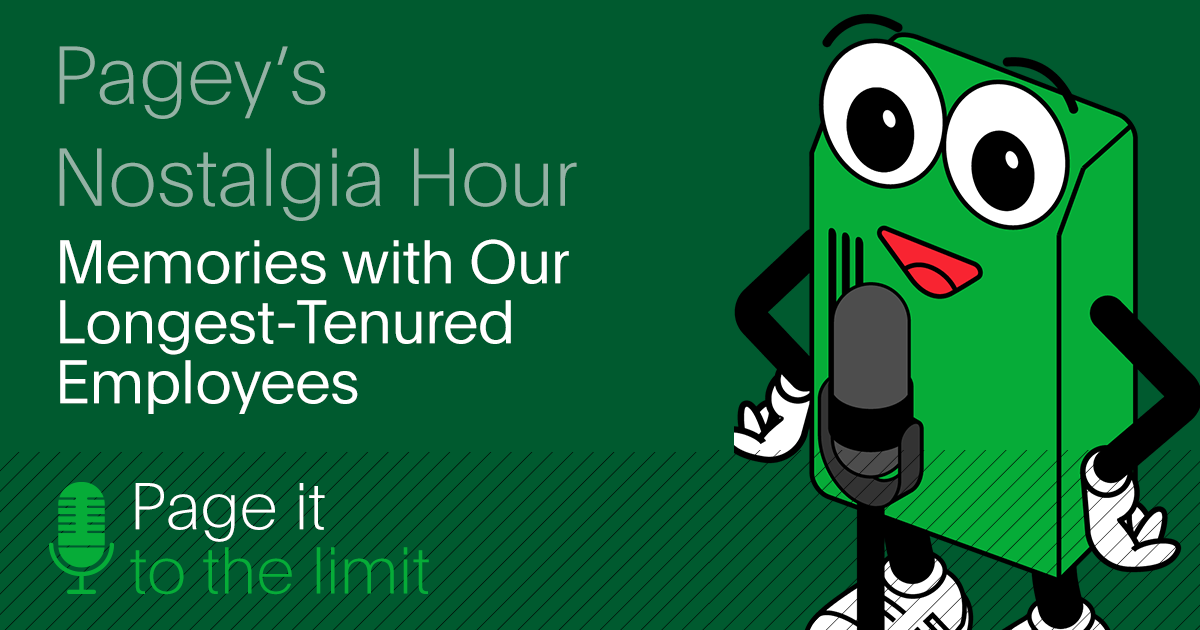
Transcript
Mandi Walls: Welcome to Page it to the Limit, a podcast where we explore what it takes to run software in production successfully. We cover leading practices used in the software industry to improve the system reliability and the lives of the people supporting those systems. I’m your host, Mandi Walls, find me at LNXCHK on Twitter.
Welcome to episode 100 of Page it to the Limit, we’re excited to have reached this milestone and have shared so many interesting stories with all of you. For this episode, we wanted to do something a little different, really there was just no way we could choose just one guest for episode 100, so we asked some of the longest serving PagerDuty employees to share some of their experiences and most memorable moments from their time here at PagerDuty. These Dutonians represent a broad spectrum of the company and have a lot of really great stories to tell.
The ones that didn’t make this episode will be shared on our social media channels, make sure you’re following us on X, LinkedIn, and Instagram. In this episode, you’ll hear from:
- our co-founder Alex Solomon, who’s been on the pod a couple of times.
- Alisa Liebowitz, Senior Director of Business Applications.
- Matt Spring, a staff systems engineer on our IT team in San Francisco.
- Ang Chapman, Strategic Alliances Director.
- Our own Kat Gaines developer advocate and her onboarding twin
- Jeff Montgomery and enterprise account executive; they started on the same day back in 2014.
- Drew Bruton, who’s our IT engineer, helping out everybody in EMEA and
- Elora Burns, a software engineer currently working on the notifications experience team.
These folks are from all over the company and we are so glad they agreed to share some of their experiences and memories with us. So let’s kick it off, we asked our guests how they came to be at PagerDuty. First, we’ll hear a bit about PagerDuty’s founding from Alex. So you’re our superstar guest for the episode, Alex, tell us a bit about yourself and how you came to be at PagerDuty?
Alex Solomon: Sure. I’m one of the co-founders, there were three co-founders in total, we started the company 14 and a half years ago roughly, so back in February of ‘09. Before PagerDuty, I was an engineer at Amazon, and that’s where we got the original inspiration for PagerDuty because Amazon even back then was one of the pioneers of DevOps and of this concept of full service ownership. Which means that as an engineer, you’re working on and building services in a service oriented architecture, and you’re not just writing code, but you’re also responsible for testing and deploying to production and managing and owning those services in production.
Part of that responsibility is going on call for those services, and at Amazon, back before the 2010s, engineers were given a pager and it was called being on pager duty because you had a pager and when you were on call, the pager would go off and you’d have to respond and log in and triage and fix the problem as quickly as possible. Otherwise, first of all, they would get escalated to your boss, which was never a good idea, but also the service would suffer and customers would be impacted, which is definitely not a good thing.
I carried the pager, I saw the value of that, and after leaving Amazon, I got together with my two co-founders and we were brainstorming ideas for the first month. The way we came up with the PagerDuty idea was by thinking back from our time at Amazon where Amazon built an internal tool to handle on-call management and paging via pagers, which was attached directly to the ticketing system. So if it was a CEV one ticket or CEV two ticket or rather CEV one or SEV two incident, those would be the major incidents that would page out.
Amazon built an internal tool to handle this, Google had their own version of that, Facebook had their own version, so it seemed to us like there was a real problem here that could be applicable to other companies running services on the internet. And we took a shot and started PagerDuty, the domain name pagerduty.com was available, so I like to joke that if it hadn’t been, who knows if any of us would be here now. But started the company in ‘09, we launched the first beta version of the product in the summer of ‘09 and started getting customer feedback and then the paid version came out in December of ‘09. And then it’s gone through a lot of different iterations, our vision has changed over the past 14 years, we started with on-call management and alerting as that version 1.0 of PagerDuty, we then expanded to cover the full incident lifecycle end to end and became an incident management solution.
Mandi Walls: Next, Kat talked to Ang Chapman about how she came to be at PagerDuty, and then I talked to Kat about her own PagerDuty origin story.
Kat Gaines: Hey folks, it’s Kat again, I am here with Ang Chapman, and this one is actually a little special for us to record because the day that we’re recording today, Ang, it’s a pretty special day for you, right?
Angela Chapman: It is so special, and I’m so happy to be here with you, Kat, we go way back too. But today is especially special for me because it is my 10 year PagerDuty anniversary.
Kat Gaines: Yes, and that worked out so well, 10 years, 100 episodes, we couldn’t have planned this better.
Angela Chapman: I know, right? So serendipitous, thank you.
Kat Gaines: 10 years, my god, a lot has changed in that time. So why don’t you tell us just a little bit about how 10 years ago you ended up at PagerDuty, how did you get here?
Angela Chapman: Great question, I love that and I love storytelling too, and after 10 years I’ve got a lot of them, so I’m so happy to be here and to share them. I graduated University of Oregon in 2012, so go Ducks by the way, and it was just a major recession and I was working in retail actually for one year, and I was super miserable, in San Francisco on a retail salary in a recession, not great.
Kat Gaines: Not the most fun, yeah.
Angela Chapman: Yeah, not ideal. But I had big dreams, so one of my good friends was actually a recruiter and she set me up with two tech interviews, which was awesome because she understood that I wanted benefits. And the first one was actually at Dropbox, which was cool because I was super familiar with Dropbox having come out of college, having used it, I’m like, “that seems really sparkly, like a cool tech company.” They had a gym in the office, which I was super stoked about, I’m like, “you can work out while you work, that’s cool [inaudible 00:07:10] San Francisco tech scene.”
But the second company was one with a weird name that I really didn’t understand the value and that was PagerDuty. But I showed up on site to our tiny little alleyway office location, which was super hard to find by the way, I showed up and as I was waiting in the reception area for my initial interview, our founder came out, who was Alex at the time, and shook my hand and was like, “I’m so happy you’re here, it’s so nice to meet you.” And now looking back, that moment was pivotal because really, it changed my perception of what I thought tech companies could be, it could be like some shiny logo company or it can be a small company with a weird name or the people are really kind. So I interviewed and I ended up wanting to work for PagerDuty, and we were 30 people at the time, so it was really small, but just that one gesture, I think, was really pivotal because it showed our cultural values and that meant a lot to me.
Mandi Walls: Now we’re here with Kat Gaines, you’ve heard Kat before, she’s one of our regular hosts on the podcast. So Kat, how did you come to work at PagerDuty?
Kat Gaines: It was really just a random recruiter outreach for me, so it was a PagerDuty recruiter at the time reached out and just said, “we have this role in our technical support organization.” I was doing technical support at another company at the time and pretty bored, it had gotten a little static, and so it seemed like a good time to chat. And I came in, I met the team at the time, everything was really small, of course, we were I think like 60 people in the whole company maybe, and so there was a lot of meeting pretty much everyone in the San Francisco office when I came in, there was really no opportunity not to meet anyone.
And then I got offered the role and accepted it and was really excited because it felt like I’d had a few different technical support roles at a couple of different companies in the couple of years out of college, but it felt like my first real job, if that makes sense, and so it was a nice change of pace.
Mandi Walls: For the next section, we asked our longest tenured Dutonians to talk a little bit about their career paths at PagerDuty. When you’ve been around a little while, you’re bound to make a couple of changes along the way, so we heard from Matt, Drew, and Alisa about their career stories. Go ahead and have a listen.
Matt Spring: I started as the first IT hire and had been looking for a position where I could be in that kind of a position because I had strong ideas about policy and process and wanted to be able to build it all from the ground up. Fast-forward a little bit, we had hired another person onto the team and then my manager started talking about hiring a manager for the team specifically because he was running a bigger department. And I got this thing in my chest where I was like, “I don’t really want to be a manager, I’ve done it before and not my thing, but I’m not done building this team and still have stuff I want to do.” So I asked if I could take over as the manager instead of hiring in somebody new and my manager was okay with that.
A few years later, I had five people reporting to me and then we brought in our first VP of IT. And since that meant that I really wasn’t going to be the last say on policy or process anymore, and I also didn’t feel like I was doing great as a manager in terms of fighting for resources and that kind of thing, I asked if I could be moved back to an individual contributor role, and fortunately that was totally an option and that’s what I did and I’ve been back in an IC role ever since. One of the things that I love about PD is the flexibility when it comes to keeping staff, I’ve seen so many people move from one team to another, some places you might call it a step backward, but really it’s just a different role and it’s always great to see good people stay because of flexibility like that.
Drew Bruton: When I started, I was relatively junior in doing IT work, so previous to PagerDuty, I was doing customer support and doing public facing technical support like Geek Squad and Apple, things like that. So when I started, it was relatively junior to doing actual corporate level IT work. Fortunately, we had Matt Spring who has been a phenomenal mentor over the years and is still here amazingly and thankfully, I learned so much working closely with Matt over the years and have just rapidly grown out my skills as I’ve worked here and still on an IC path, but having been promoted a few times since I’ve been here. And then as our space in San Francisco initially, and then as our EMEA team in London continued to grow out, I immediately raised my hand and went, “I want to go to London, can I go to London?”
And it took a couple of years to finally get the justification across, but then I was able to actually transfer out here and help support the team here in London and actually now help get the Portugal team off the ground in Lisbon and spend a lot of time in Lisbon and it’s been a lot of fun. It reminds me of when I first started, so when I first started, it was less than a hundred people at PagerDuty and when I moved out to London, we were about 45 or 50 in the UK and now we’re 75 in the UK and 120 in Portugal. It’s been almost the same fun rapid growth experiments when I first started nine years ago.
Alisa Liebowitz: Totally. So I joined as a support agent, but I was one of two people not really working on the product. There were a lot of other things to do that fell outside of what is considered a support agent’s job description, so I would do everything from collections to marketing, blog posts. I even did some sales in the early days, but got to dip my feet in a lot of different areas and see what I liked, what I enjoyed, what I thrived in and what I was good at.
And then as we started to build out our first sales team, we acquired Salesforce as a tool and needed folks to manage those applications. And that’s where I found my calling or niche and started on the sales operations team, learned how to configure and manage Salesforce. And then once we continued to grow and evolve as a company, we built out a business systems team in the IT org and that’s where I’ve been since.
Tiago Barbosa: Now that we’ve listened to some amazing career decisions, let’s hear from Matt and Kat on some of the biggest changes they experienced in PagerDuty since they joined.
Matt Spring: I have to go with the macro view on that. And when I joined the company was almost entirely engineers, we did have people in other departments, but it was for sure engineering heavy and we were still being run by the three founders. So it’s been amazing to watch as we built out all of the actual teams and departments for those functions and, again, that we managed to keep a lot of the people that normally would’ve been out the door in the face of that kind of change, but who were instead empowered to find a new spot for themselves.
And then in addition to growing out those departments and the org, the international expansion has been a huge change. When I started, there were a couple of people in Toronto, but otherwise, it was all US and now we’re on multiple continents, which is pretty cool. And then seeing the founder’s own personal growth, two of them obviously are no longer here having left by choice and we’ve still got the one, and just seeing them start out as when I joined, they were kids who had an idea and thought if they could make 20K a year, they could go sit on the beach and have a drink. And to see them change from that into actual executives who are for real grownup types with real jobs is pretty cool, I don’t think that’s something that a lot of people get to see.
Kat Gaines: Yeah, I think it was a year or two ago that we had our 13-year anniversary as a company and someone was like, “PagerDuty is a teenager.” And I think it’s more accurate to say that we’ve grown up in that time, I think we felt crazy all over the place, teenager stage. When I started, everybody was doing a little bit of everything, it was just kind of, “where’s the process for this thing? There isn’t one, we have to figure it out,” that kind of stuff. And so I think I’ve seen those types of changes where it’s just very scrappy, we’re figuring things out to now things are very established and there are ways for people to do things that make sense to obviously just growth in size both from the employee perspective and the customer perspective.
I remember early on, we were really excited at a couple of big name customers and those were the ones we were always talking about. Now it’s like, there are a number of those we can talk about at any given point and that’s a pretty cool thing. And then I think too, the changes in the product, it was very much just an on-call tool when I started and that was a great thing. And now there are so many different features to the product that make that core functionality useful for other people, but then also give them other bells and whistles to play with, that’s been really cool to see too. I think one of the things that really excited me about PagerDuty when I was joining was seeing interesting non-traditional use cases and we’ve catered more to some of those non-traditional use cases over the years and we’ve been trying to listen to what those folks need and that’s been really cool to see.
Tiago Barbosa: For someone who joined recently like I did, it’s really important to hear from tenured members of PagerDuty that the company has become mature and achieved growth without losing its great culture. Still, there is one point in time that I’m really curious about, the IPO. Let’s hear some IPO stories from Matt, Geoff, Kat, and Angela.
Matt Spring: I tried to think through and there’s funny things and there’s serious things and there’s stuff that’s work related and there’s stuff that’s social. But what I decided was probably the thing to call out, was when we got listed on the New York Stock Exchange and leadership invited a bunch of the more tenured employees to actually travel there for the opening bell that day. And I’ve never heard of another company doing that, I’m sure others have, but it’s one of those experiences that I can’t imagine I would’ve gotten somewhere else and really made me feel like part of the company to be included in that.
Geoff Montgomery: I think somewhat the end of quarter or end of fiscal, maybe the first end of quarter being a sales rep and having things and just feeling the excitement in the office like when it’s the end of the quarter or end of the fiscal year, my first year, which was obviously my first closing sales job, I’d say that, but I think it would have to be generally when we were all in New York for the IPO four and a half years ago and everyone’s tired from flying out from west and the night before, but talking to some longtime customers there and a lot of whom who had been using PagerDuty for years across multiple companies. So that leading into the Thursday morning, up early, just standing in the background of CNBC waiting for everything to start trading, which took a couple of hours. But I think just that moment of seeing the inflection point in the company and knowing that we had been there for almost five years at that point, but just being there for that and experiencing that was something that I’ll always remember.
Kat Gaines: We came up with these questions together and I was thinking about this one and struggling so hard at recording. I have no reason to not have an answer, I do have an answer, but it was like, “my God, which one do I pick?” It’s probably going to sound a little cliche, but probably our IPO because that was really fricking cool to see like, here is a turning point in this company and here’s like, all right, we’re in the big leagues now kind of moment. And then to actually get to be there and experience that, not everybody got to go because that just would’ve been unwieldy I think, but there were a certain number of tenured PagerDuty employees who got to go and I felt lucky to be in that group.
And it was just like being there with people I’d worked with for years already at that point and just being like, “look at this thing that all of us and everyone who isn’t here did together,” and just having that celebratory moment, it was a very just nice warm, fuzzy feeling of community and everyone being really stoked about the future. And it was also 2019, so it was before everything got really weird and it was one of the last big in-person things with this company that I remember doing and so it was pivotal for that reason too, kind of bittersweet, weird, but definitely a favorite nice thing.
Angela Chapman: I think the transition from a startup to a public company was huge. Having gone from this 20 something year old sitting at the reception desk and then in 2019 standing at the stock exchange floor watching us go public was pretty cool and very humbling and I have chills even thinking about it, what a great experience. And just knowing the amount of work and effort that we all put behind it as a team was really cool to see. And then some people say, “this is the finish line,” but it’s really not like that. When we became public was really when the hard work started, I would say, and that felt like a new moment for us, it was like, “we’re big kids now.”
Kat Gaines: For our next question, we wanted folks to reflect on their favorite moments at PagerDuty throughout their tenure. So you’ll hear from Elora, Drew and Angela about those favorite moments next.
Elora Burns: One of them was early on doing hack days, I joined an acapella band Countermeasure, you can find them at countermeasuremusic.com, you can find us there, albums, YouTube videos and all that. And we’d just done a concert with the Toronto Northern Lights Barbershop Chorus, which is a 70-ish person strong barbershop style choir, they’re incredible, definitely look them up as well, they’ve got one video up and they’re all wearing vegetable costumes, but it’s an incredible song, it’s amazing, I highly recommend it. I had the idea, barbershoppers love to do, they call it singing tags, they will sing just the ending of a song, the ending of a barbershop song tends to be a little more complicated, a little more special, it’s a nice little treat at the end for you. And at the end of a concert, they’ll have what they call an afterglow, they’ll have a party afterwards pretty much invariably. And what they’ll do at the party is sing tags, they’ll just get random groups of four people, if you don’t know the tag, they’ll teach you and then you just sing tags together. And I thought, well, that’s cool and they’re short and catchy, we should have those for when you get paged at night.
And so I found a bunch of tags on a website, barbershoptags.com probably, and transcribed one that I had an audio track for because I really loved that particular one and wrote PagerDuty lyrics for all of them, the servers on fire, on fire and the network’s down, all that stuff, it was hilarious. And I managed to make three other people into doing it and one hack day, we recorded in one of the rooms at 22 Duncan at the first PagerDuty office I was in, we’re onto our fourth since I started in Toronto. We recorded this thing and between me and Peter Soba, we did some timing and did some pitch correction because we want these to sound really, really good. And they got put into the mobile release, it was me, Luke, Irving and Peter, that has continued to live on.
Some customer’s kid then submitted another song, (singing), and that we inspired a kid to do that is amazing, I love that. We actually held then a competition for, “submit the best alert tones,” and I probably shouldn’t have, but I did submit an entry to that and it ended up winning. So if you go listen to the Oncall Take the Fall, that is acapella, it’s just my voice multi-tracked again and again. Where the barbershop is very acoustic, it’s what you would hear if we were in the room with you, Oncall Take the fall is processed, there are effects and layers and everything like that. And I like it particularly because it starts off slowly and it builds and it builds and then it smashes in, and that way if you hear it, you can stop it in time before it wakes anyone up. You don’t catch it, it’ll wake you up, it will get there, it was very specifically designed to be the one alert tone that crept up on you. I also got to go to San Francisco in the marketing budget because of those barbershop tones. There was a guy who was doing a presentation at Mind the Product he wanted to showcase, the barbershop thing is really cool, it’s a thing that a company does that doesn’t really tie into profit or usability, it’s just a fun. And because was, “PagerDuty’s in San Francisco,” and contacted us and marketing said, “this would be great, sure you can go,” and we got four of us to go, I think there were only two of us left from the original four, so the two of us went and then we got two other people to join in and we did live performance at Mind the Product of the songs.
Drew Bruton: We used to hang out in the office, we used to have, was it Thursday nights, I think it was, Alex and a bunch of the engineers and I usually would tag along, we had a local bar in San Francisco called Doc’s Clock. And I think it was most Thursdays, at the end of the day, we would usually hint up at Doc’s Clock, and I don’t know if that photo is still around, but there’s actually one famous photo of Arup who used to be our director of infrastructure, he left a couple of years ago, but he helped really shape the engineering team in the early days. And there’s a picture of Arup sitting with the operations team on the curb outside of Doc’s Clock because they all got paged on a Thursday night while they were having drinks. There’s a picture of all of them sitting on the curb outside Doc’s with their laptops out trying to respond to an incident, it was a great photo and I wish we could dig that up, I’m sure it’s floating around somewhere, but it was a great photo.
Angela Chapman: I would say at any event too, I’ve had such fun memories, but one in particular that resonates with me was at our London Connect event. Gosh, I don’t even know the year, but we showed up onsite and it was hard because I didn’t do site visits or anything. I booked the Ace Hotel in Shoredich in London, which was like a cool hip venue, and I booked this room and they said that the seating capacity was 70, but I showed up onsite the day before, flew in from London and the room was wall-to-wall chairs, there was no tables, anything, it was just chairs and I’m like, “this isn’t safe whatsoever.” But our geo lead at the time, Steve Barrett, love him, he stepped in and helped me rearrange things.
And this is the night before, but then I was hanging up window clings, you know what I’m talking about, like the graphics on the windows. And he and a sales rep and Lisa, one of Alex’s executive assistants, helped me just set up window clings the night before this event, like putting PagerDuty graphics on the Ace Hotel and really making it special and just knowing that a VP was there or a geo lead and my team was there to help support and mediate the event chaos. And with events, it’s always a toss up, but that was pretty cool to have that support.
Mandi Walls: We also wanted to ask something random and fun: swag. Whether it’s t-shirts, socks, or tchotchkes, folks love swag. So we asked everyone for their favorite PagerDuty branded item. Alex mentioned one that’s also my favorite, the shirts with the slogan, “Don’t Hate the Pager, Hate the Game”, those are an absolute classic. Here’s what Alisa and Geoff had to say.
Alisa Liebowitz: I do, I have so many T-shirts and everything that now have unapproved logos on them. As we’ve evolved, I think my favorite PagerDuty swag has to be the rain jackets we got when we IPO’d. That’s been my most used item, I bring it on all my trips and it’s easy to pack and always very helpful if you get stuck in the rain, so I really enjoy that one.
Geoff: There’s been so many different slogans in t-shirts, some that have lasted longer than others, but the PagerDuty onesie for my daughter who’s now almost 18 months and she has a little stuffed animal Pagey that makes me also reflect how long it’s been and how many different points of my life I’ve experienced at PagerDuty. So I’d probably say those two.
Tiago Barbosa: PagerDuty has got amazing swag indeed, but let’s hear from Geoff and Angela what they are most excited about regarding PagerDuty in their future.?
Geff Montgomery: With COVID or being a little more restricted for a few years and as a sales rep, I can get energy from other people and I like sharing things with other people, or going out and meeting with customers or prospects and I think that’s a general future thing. The fact that this year we’ve been able to do that a little bit more in that face-to-face interaction is really important and something I enjoy, so that’s more of a general future at PagerDuty.
But with PagerDuty also, I think I alluded to some of the growth in the different products, but not to overly use generative AI, which I think is a buzzword, a lot of people are using that generally, which is seeing where else we can go outside of paging on-call and escalations and really showing customers exactly how we can drive value for their organizations. And that can be a challenge, kind of rethinking how people think about you, but that’s a challenge I’m eager to accept and continue doing. So those things, just having PagerDuty become a really multi-product company and continuing to see these customers grow are a couple of pieces I’m excited about.
Angela Chapman: I’m so excited for what’s coming next, so 10 years I’m like, I own the AWS Alliance, which has been amazing, I’ve learned so much and just working with partners and our executives on that, I have been doing it for four years. But I am actually moving to our Portugal office, I’m relocating because I asked, I am super excited about the opportunity, the leadership team there is amazing, product and marketing focused.
And just to have that satellite, smaller company exposure though to moving from our HQ in San Francisco over the past 10 years to get back to that and learn more things too about like a market that I’m not familiar with and our customers more importantly over there. And to learn Portuguese, I’m excited for that, and to just live in Lisbon I think is an awesome opportunity, so I’m really, really excited for the next chapter.
Kat Gaines: And that wraps us up for episode 100, thank you so much everybody for joining us on the first 100 episodes of this podcast. And thank you to our guests today for joining us and sharing your favorite PagerDuty memories, we’re really looking forward to hopefully the next 100 and more episodes of Page it to the Limit.
That does it for another installment of Page it to the Limit, we’d like to thank our sponsor, PagerDuty for making the podcast possible. Remember to subscribe in your favorite podcaster if you like what you’ve heard, you can find our show notes at pageittothelimit.com, and you can reach us on Twitter at pageit2thelimit. Thank you so much for joining us, and remember, uneventful days are beautiful days.
Show Notes
Additional Resources
- Elora’s acapella group, Countermeasure
- Hear all the barbershop ringtones
- PagerDuty Home Page
- Episode edited by Mandy Moore
- Transcripts by Rev
Guests
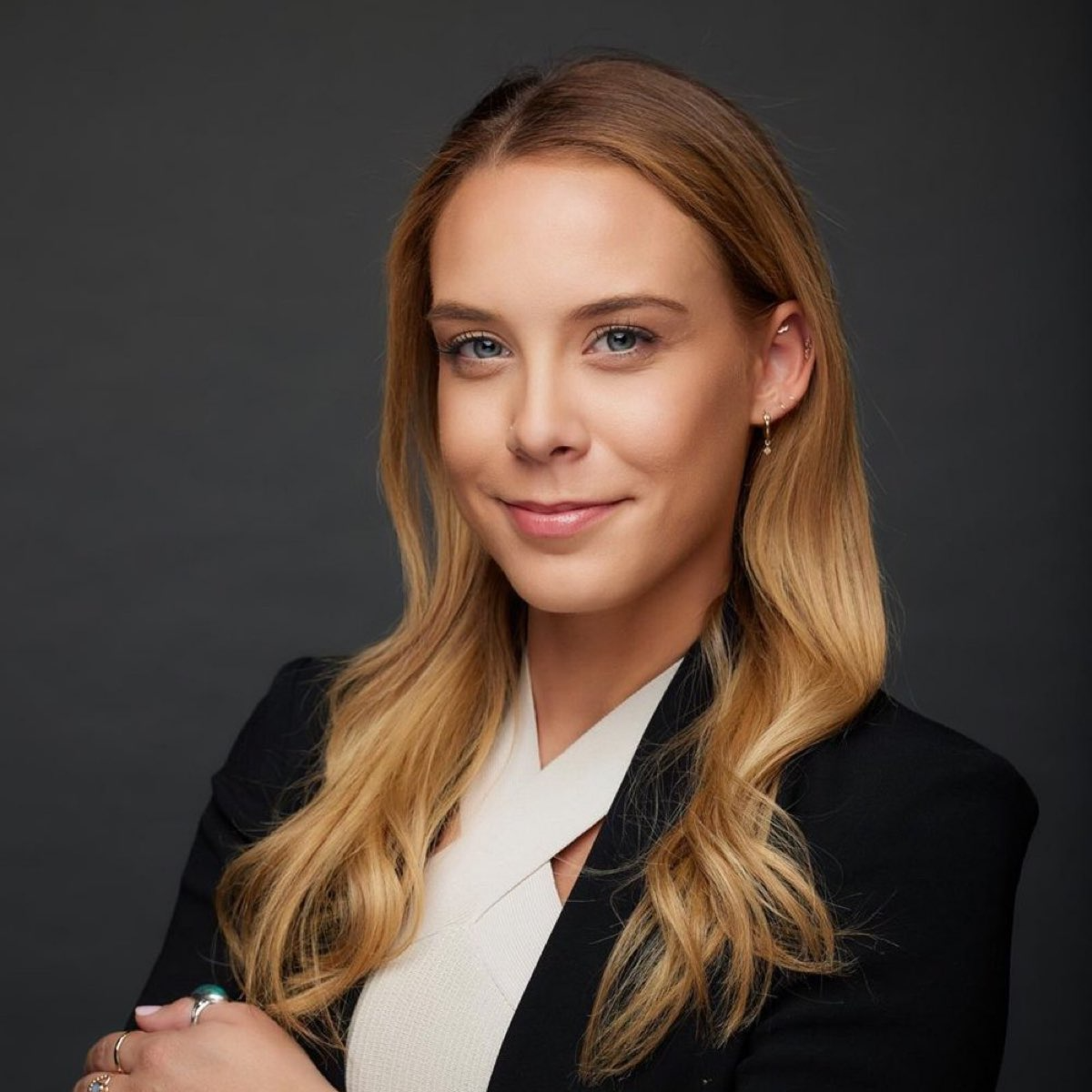
Angela Chapman (she/her)
Raised on an island in the PNW, I made her way to San Francisco after graduating from the University of Oregon, where I started working for PagerDuty. My next chapter with the company will take me to Lisbon, where I will continue to work on our AWS Strategic Alliance. I love to travel and stay active through yoga. I am passionate about all things nature, especially Marine Biology – love to geek out on whale facts.
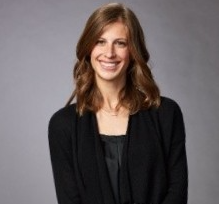
Alisa Liebowitz (she/her)
My name is Alisa Liebowitz and I have been at PagerDuty for over 11 years, starting when the company was under 20 employees. I am excited to share my journey with you.
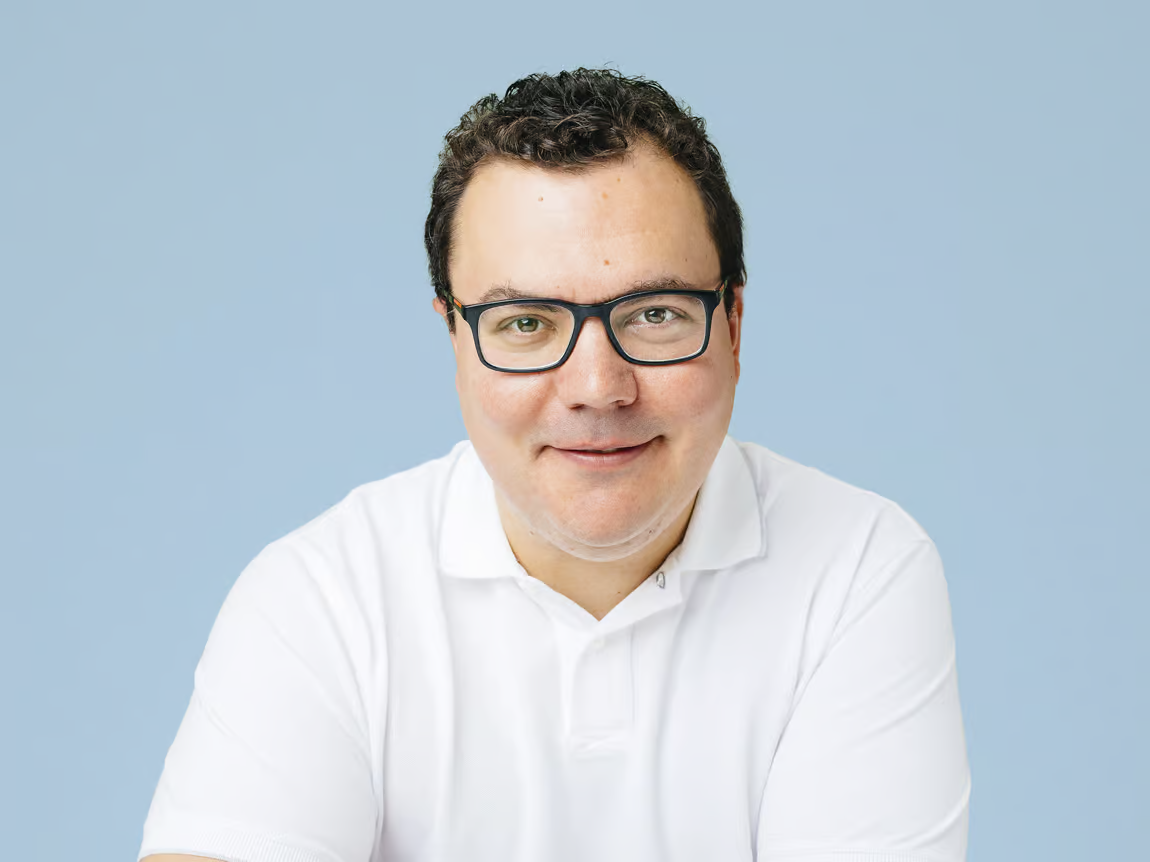
Alex Solomon (he/him)
Alex Solomon is the Co-founder and General Manager of PagerDuty. He advocates for growing the community of PagerDuty practitioners by sharing best practices that advance real-time operations. Alex started PagerDuty in 2009 as founding CEO, leading the company through several stages of growth, including product-market fit, fundraising, and expansion of the product vision to what is now the PagerDuty Operations Cloud. He has served on the PagerDuty board of directors since 2010.

Drew Bruton (he/him)
I’ve spent 9 years working in IT at PagerDuty helping to build out and manage our internal tools and systems. I spent 10 years in the bay area, where I started at PagerDuty before moving to London in 2021 to support or team in EMEA.
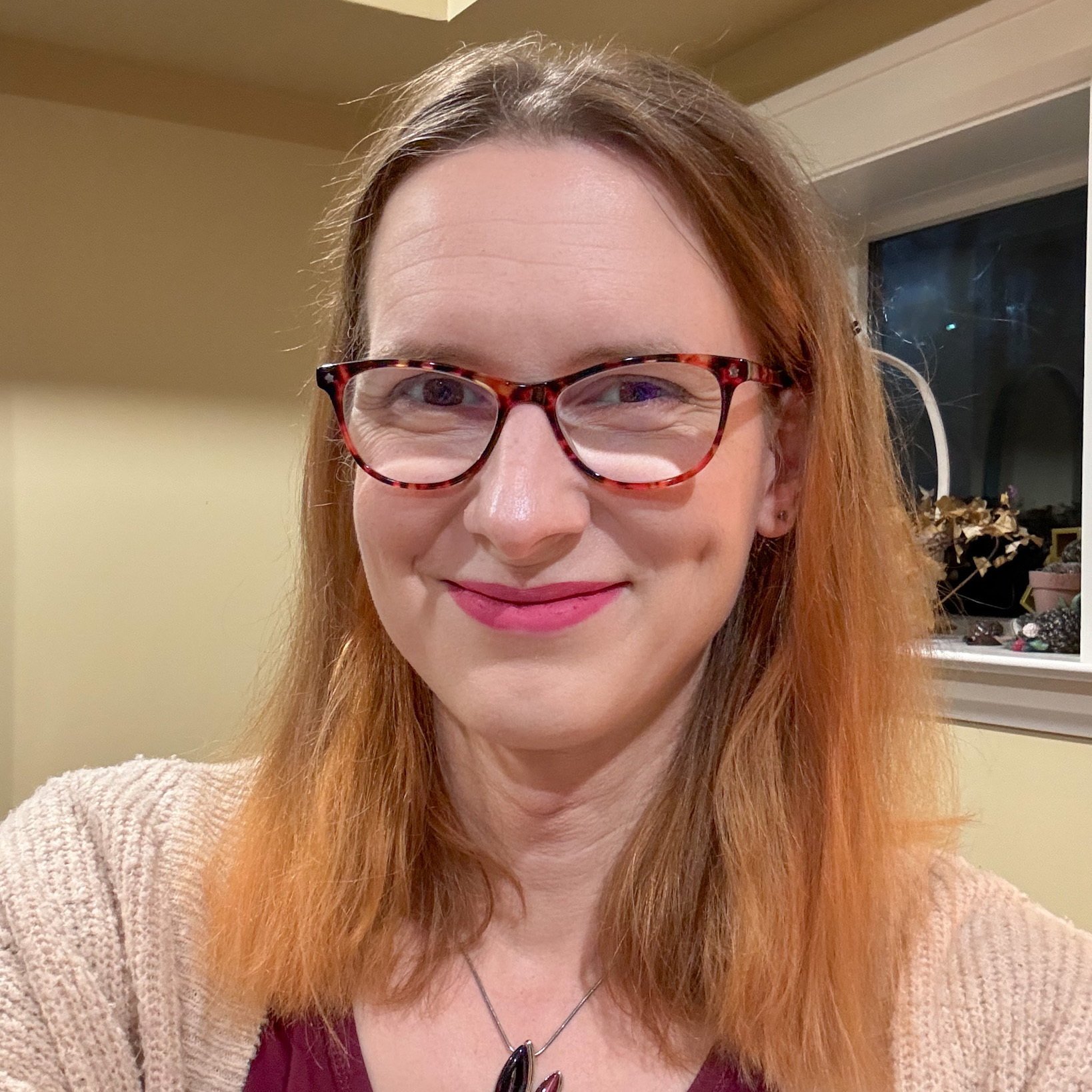
Elora Burns (she/her)
Elora likes to find weird bugs. Well, she finds them whether she wants to or not! She’s done several “change the engine while the plane is flying” migrations over the years, and enjoys making things better going forward. She also sings with www.countermeasuremusic.com, cooks, makes things, and knits continental.

Geoff Montgomery (he/him)
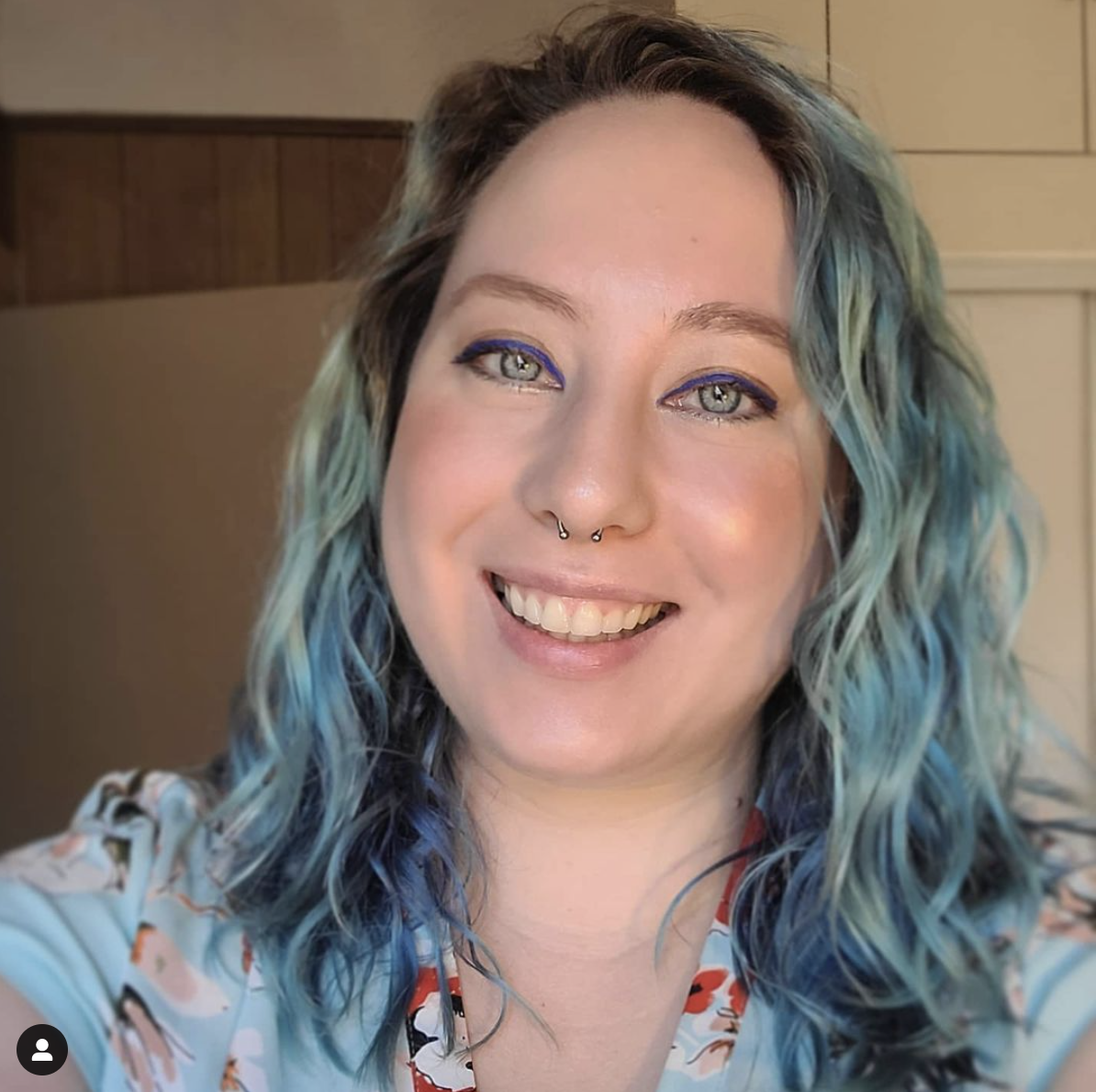
Kat Gaines (she/her/hers)
Kat is a developer advocate at PagerDuty. She enjoys talking and thinking about incident response, customer support, and automating the creation of a delightful end-user and employee experience. She previously ran Global Customer Support at PagerDuty, and as a result it’s hard to get her to stop talking about the potential career paths for tech support professionals. In her spare time, Kat is a mediocre plant parent and a slightly less mediocre pet parent to a rabbit named Lupin.

Matt Spring (he/him)
Matt has worked in systems administration and support for over 25 years, the last ten of which have been at PagerDuty. He likes to prioritize making IT an ally of its customers, and fostering a collaborative relationship between IT and the rest of the org.
Hosts
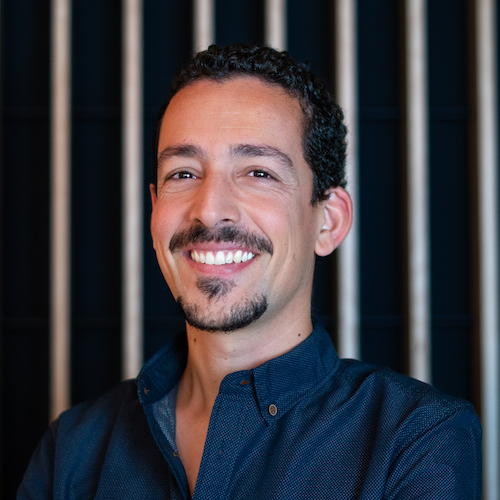
Tiago Barbosa (he/him)
Tiago Barbosa is a Developer Advocate for PagerDuty. With 13 years of experience in the tech industry, he has helped hundreds of companies of various sizes and industries on their journey to build resilient and scalable cloud applications while working for Microsoft and AWS. Before moving to PagerDuty Tiago ran the Cloud and Platform Engineering teams for Music Tribe. When he is not busy working or travelling, he is most certainly spending some good time with his family, playing music or surfing.

Kat Gaines (she/her/hers)
Kat is a developer advocate at PagerDuty. She enjoys talking and thinking about incident response, customer support, and automating the creation of a delightful end-user and employee experience. She previously ran Global Customer Support at PagerDuty, and as a result it’s hard to get her to stop talking about the potential career paths for tech support professionals. In her spare time, Kat is a mediocre plant parent and a slightly less mediocre pet parent to two rabbits, Lupin and Ginny.
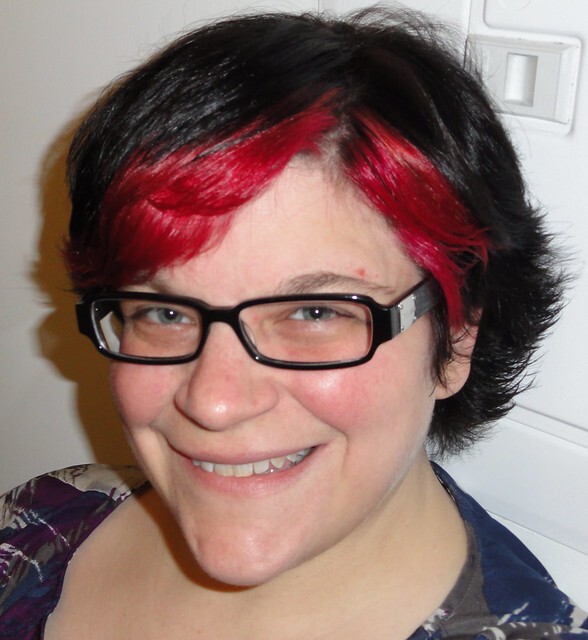
Mandi Walls (she/her)
Mandi Walls is a DevOps Advocate at PagerDuty. For PagerDuty, she helps organizations along their IT Modernization journey. Prior to PagerDuty, she worked at Chef Software and AOL. She is an international speaker on DevOps topics and the author of the whitepaper “Building A DevOps Culture”, published by O’Reilly.